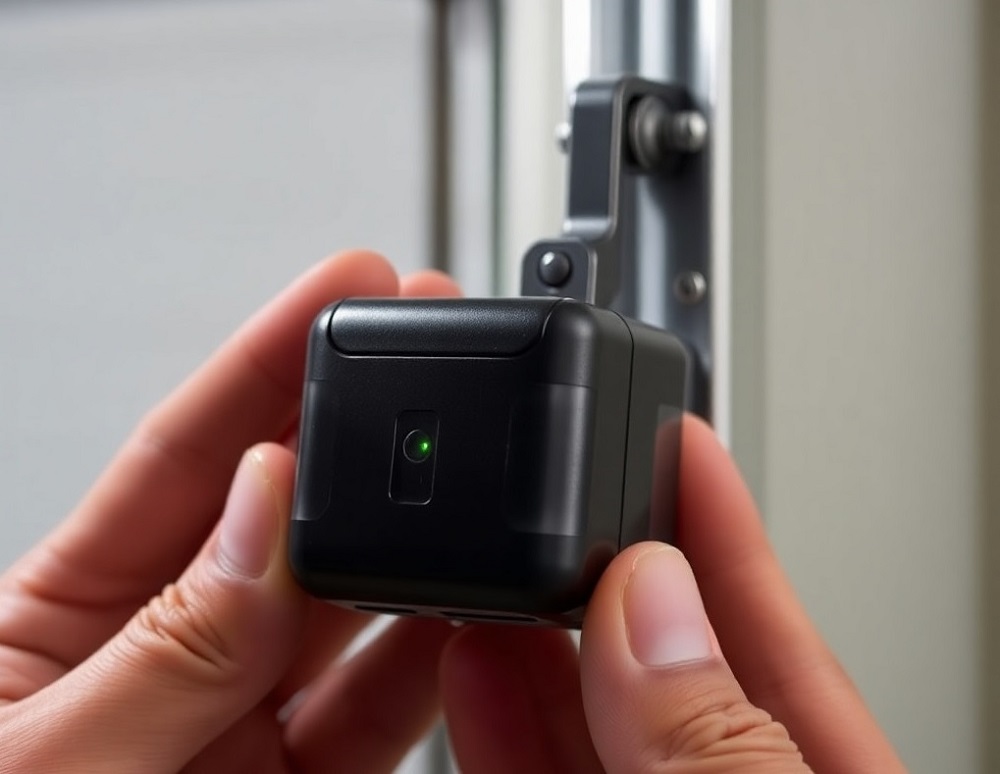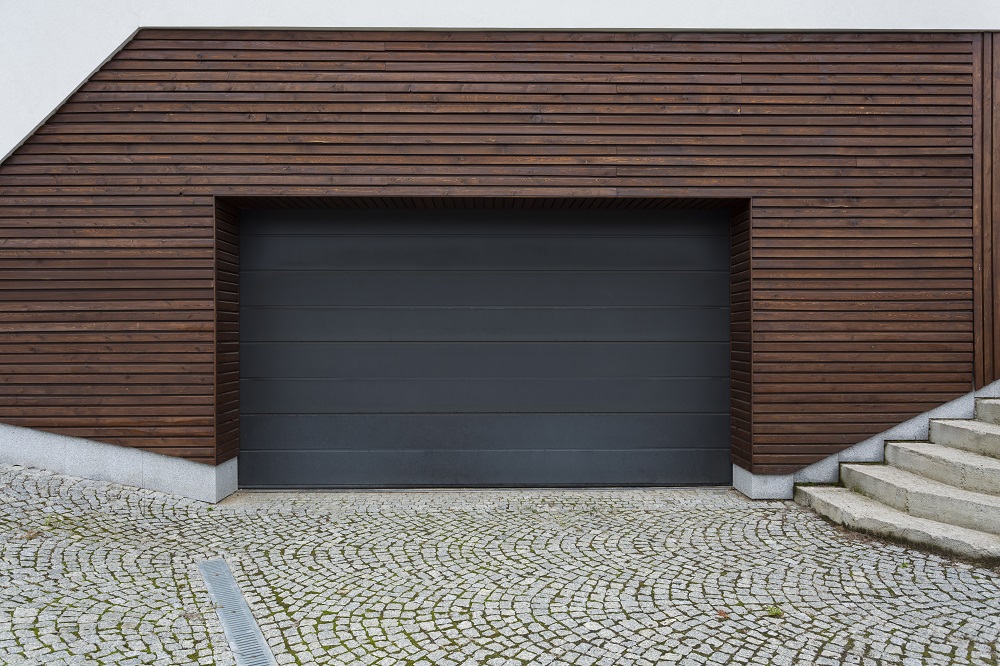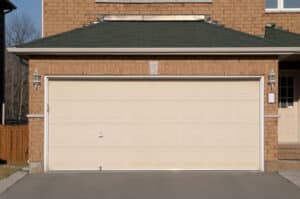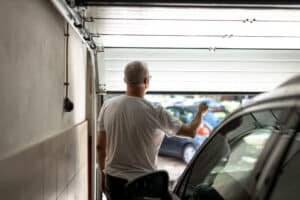How Does Living at a Higher Elevation in Parker Affect Garage Door Sensors?
Table of Contents
- Key Takeaways
- Why Elevation Matters for Garage Door Sensors
- Common Sensor Problems Parker Homeowners See
- How to Troubleshoot Sensor Issues at Higher Elevation
- Preventive Maintenance Tips for Parker Homeowners
- Do Garage Door Openers Work Differently at Higher Elevations?
- Keep Your Garage Door Sensors Reliable in Parker
Living in Parker, Colorado offers open space, fresh air, and mountain views. But the higher elevation also creates conditions that can affect garage door sensors.
At Select Garage Doors, we know how Parker’s climate impacts these systems. Sensors are small devices with an important job, stopping the door if something is in the way. At higher elevations, they face unique challenges that homeowners elsewhere may not see.
If you’re experiencing sensor issues or want a professional check-up, contact us today for reliable garage door service in Parker.
Key Takeaways
- Parker’s high elevation does not weaken sensor beams, but the climate that comes with altitude, including UV rays, wide temperature swings, and dry air, creates challenges.
- Direct sunlight, dust, wiring wear, and misalignment are the most common causes of garage door sensor issues in Parker.
- Homeowners can often fix problems by cleaning lenses, checking alignment, inspecting wiring, and shading sensors during bright sun.
- A preventive routine of monthly cleaning, seasonal tune-ups, and wiring protection helps sensors stay dependable.
- Garage door openers also feel the impact of Parker’s conditions through cold-weather lubricant issues, static from dry air, and reduced battery capacity.
- For lasting reliability, Select Garage Doors provides expert service in Parker, available 24/7 to keep homes safe and garage doors running smoothly.
Why Elevation Matters for Garage Door Sensors
Parker sits about 5,900 feet above sea level. Elevation itself does not change how a typical garage door sensor works, but the environment that comes with altitude does. At higher elevations, UV rays are stronger, temperatures swing more sharply, and the air tends to be drier. These conditions affect both sensors and the components around them.
Here are the main factors tied to Parker’s elevation and climate:
Direct sunlight on the receiver eye: Sensors use infrared light to communicate. Bright sun hitting the receiving eye can overload it and prevent the door from closing.
- Temperature swings: Rapid shifts from warm afternoons to cold nights cause brackets and housings to expand and contract, which can nudge sensors out of alignment.
- Dry, dusty air: Dust and fine particles can settle on lenses, blocking or scattering the beam and leading to false readings.
- UV exposure on plastics and wiring: Stronger UV light at higher elevations speeds up wear on housings and wire jackets, making them brittle over time.
Common Sensor Problems Parker Homeowners See
Because of these conditions, Parker homeowners may experience sensor issues more often than people living at lower elevations:
- False obstruction: The door will not close even when the path is clear, often due to bright sunlight or dirty lenses.
- Intermittent operation: Sensors work at times, then fail when alignment drifts or glare is strong.
- Misalignment: Expansion and contraction from temperature shifts can move sensors slightly off target.
- Wiring issues: Sunlight and weather exposure can make low-voltage wires brittle, leading to breaks.
- Seasonal glare and reflection: Bright sun in winter and reflective surfaces like snow or concrete can add extra light interference.
These problems can be frustrating and can also create security concerns when the garage door will not close properly.
How to Troubleshoot Sensor Issues at Higher Elevation
Many of these issues can be addressed with a few simple steps before calling for service.
Clean the lenses: Use a soft cloth to remove dust and dirt. Even a thin layer is enough to block the beam.
- Check alignment: Sensors should face each other directly at the same height. Even a slight shift can cause failure. Use a bubble level for accuracy.
- Shade the receiver during testing: If the door refuses to close on bright afternoons, shade the receiving eye with your hand. If the door works when shaded, sun glare is the issue.
- Inspect the wiring: Check for cracks, brittle jackets, or loose staples. Replace damaged runs with UV-resistant cable where exposure is unavoidable.
- Secure brackets and mounts: Make sure sensor brackets are tight and not shifting from vibration or track movement.
Preventive Maintenance Tips for Parker Homeowners
Preventive care keeps your system dependable. A routine suited to Parker’s elevation and climate makes a difference.
- Clean sensor lenses monthly to prevent dust buildup.
- Add small sun shields or slightly adjust the receiver angle to reduce glare if bright sun is a recurring issue.
- Schedule tune-ups twice a year, once before winter and once before summer, to check alignment and wiring.
- Protect wiring with conduit or covers where it runs outdoors or near windows.
- Watch the door’s movement and listen for unusual sounds that may signal shifting parts.
Do Garage Door Openers Work Differently at Higher Elevations?
Garage door sensors are not the only components affected by elevation-related conditions. The opener itself can also feel the impact of Parker’s climate, though not because of air pressure. The motor and electronics operate the same way at altitude, but the surrounding environment matters.
Lubricant performance in cold weather: Cold nights thicken lubricants inside the motor and gears, making the opener work harder until temperatures rise.
- Electronics and static in dry air: Dry conditions increase dust and static, which are tough on circuit boards. Keeping covers on and cleaning regularly helps.
- Battery backup in cold conditions: All batteries lose capacity in cold weather. Lead-acid batteries lose more than lithium types, but both should be tested and replaced on schedule.
For homeowners, this means that garage door reliability at elevation depends more on managing local climate factors than on altitude itself.
Keep Your Garage Door Sensors Reliable in Parker
Living at a higher elevation in Parker does affect garage door sensors, but not because of thin air. Stronger sunlight, wide temperature swings, dust, and UV exposure are the real factors. Regular cleaning, alignment checks, and wiring protection help keep sensors dependable, and professional service adds extra reliability.
For complete peace of mind, Select Garage Doors offers expert service in Parker. If your sensors are giving you trouble, call us today.
Our team is available 24/7 to keep your home safe and your garage door working smoothly.
REQUEST A QUOTE

Our Services
Service Areas
Service Areas
WE SERVICE COLORADO SPRINGS, PARKER, LAKEWOOD AND SURROUNDING AREAS


 Direct sunlight on the receiver eye: Sensors use infrared light to communicate. Bright sun hitting the receiving eye can overload it and prevent the door from closing.
Direct sunlight on the receiver eye: Sensors use infrared light to communicate. Bright sun hitting the receiving eye can overload it and prevent the door from closing. Clean the lenses: Use a soft cloth to remove dust and dirt. Even a thin layer is enough to block the beam.
Clean the lenses: Use a soft cloth to remove dust and dirt. Even a thin layer is enough to block the beam. Lubricant performance in cold weather: Cold nights thicken lubricants inside the motor and gears, making the opener work harder until temperatures rise.
Lubricant performance in cold weather: Cold nights thicken lubricants inside the motor and gears, making the opener work harder until temperatures rise.



